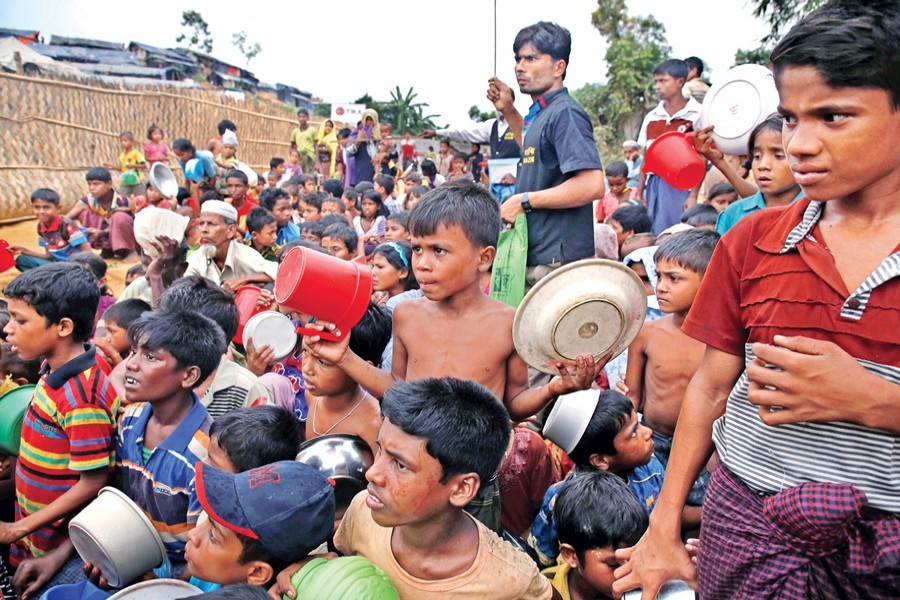There is an old Bengali proverb,"Durattar chhaler obhab hoi na" - an evil soul is never short of deceit. Then you have Joseph Conrad (1911) remind you, "Men alone are capable of every wickedness." But the final word had to be by Jonathan Swift dated as far back as in 1711 : "I don't wonder to see men wicked but I often wonder to see them not ashamed."
When everything else fails to illuminate the savagery of a dark hermitage the Myanmar military junta represents, you may as well apply the above aphorisms to the regime. For, after having emptied the Rakhine state of the Rohingyas and forced an influx into Bangladesh they are now playing ducks and drakes with their lives.
Here are some deceptive, or you might as well dub them as self-delusional instances of Myanmar's new set of trickery. A FT Syndication Service story by John Reed on Sunday pulls up the venetian blinds through its title: "Myanmar builds repatriation camps devoid of Rohingya returnees."
The report-- in the wake of a group of foreign journalists recently visiting a 'facility'-- referred to a gleeful demonstration by a Burmese official as to how 'Rohingya returnees would be photographed and have their paperwork checked and fingerprints and retinas scanned.' The FT scribe on the government sponsored tour had the 'eerie' (parenthesis mine) feeling of 'a stage set -albeit devoid of its main characters, the Rohingyas.'
Aung San Suu Kyi's government is reportedly now inviting diplomats and journalists in chaperoned groups to showcase its readiness to re-absorb the Rohingyas. But Rohingya Muslim refugees fear that since their original homes were burnt down in last year's military onslaught, they are condemned to be living in camps.
A new element to the picture is claimed by Myanmar government that they have reached an agreement with the UN Development Programme (UNDP) and the United Nations High Commissioner for Refugees (UNHCR) on a memorandum that will allow repatriation of the 'duly verified' displaced persons. But what's sorely missing is a categorical assurance of easing restrictions on Rohingyas' rights, including their citizenship.
Moreover, some tell-tale signs about Myanmar authorities physically transforming the places where hundreds and thousands of Rohingyas had formerly lived can be seen.
I think the following statement from Richard Weir, a researcher with Human Rights Watch, brings up the stark reality: "The government is focused on process and appearance, but they are not focused on the substance: changing the underlying conditions in Rakhine state…."
A local official was quoted as telling reporters in Maungdaw: "If they (the Rohingyas) want to repatriate, according to their wish, yes, we will receive them."
The semblance of apparent positivity in Myanmar's attitude to repatriation is being put down by observers to the reference having been drawn to Bangladesh as a state party to Rome Statute and a sufferer seeking its opinion on a proposed International Criminal Court (ICC) investigation into deportation.
In this overall context, it's worthwhile to note that even as Myanmar procrastinates, by its own admission at rate of its intake of 300 refugees per day the whole process will have taken eight years. If this not dictating terms to Bangladesh and the rest of the world to hunker down to a long haul or accept an unsettling prospect of destabilisation of the region, then what is?
In this budget and election year, Bangladesh has an additional concern to focus on, namely upkeep of the one million Rohingya refugees with adequate and sustained donor support.


